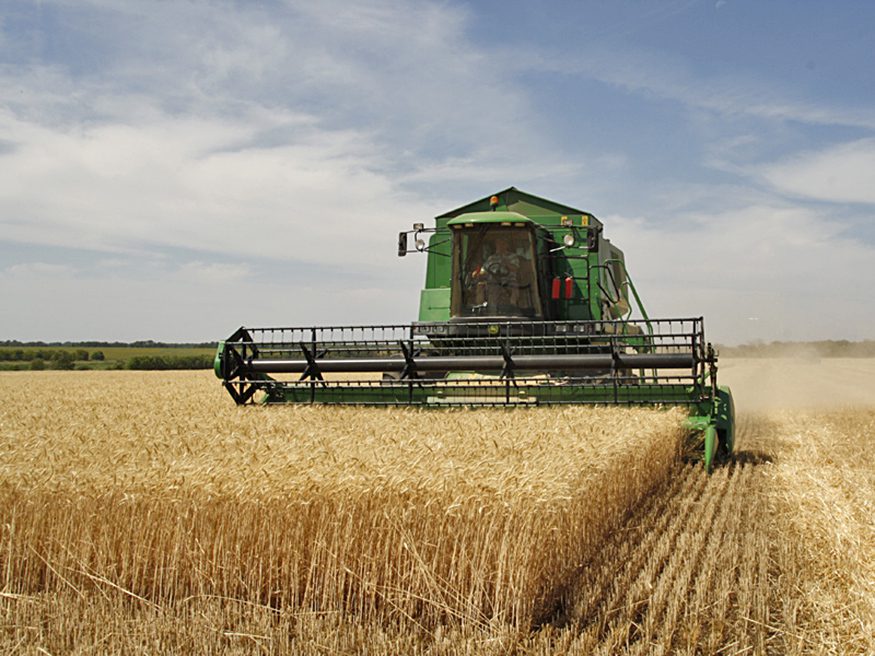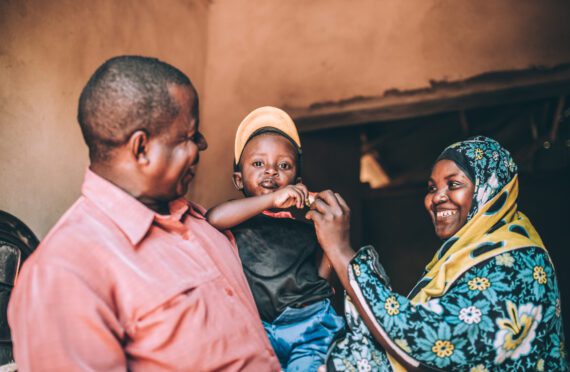By Abiola Afolayan
In recent years, Bread for the World has emphasized the importance of strong food systems that prioritize nutrition, equity, and sustainability as necessary to help end hunger for good. A fundamental task in any food system is to improve agricultural productivity and sustainability in the farm sector, which includes the capacity to produce essential staples such as wheat.
The world economy is still in the process of recovering from its near-total shutdown in 2020, as countries tried to contain the COVID-19 pandemic. As the pandemic enters its third year, an unprecedented number of countries around the world face hunger emergencies.
Hunger is projected to worsen as a result of Russia’s invasion of Ukraine, since Ukraine is a breadbasket, exporting wheat and other grains, fuel, and fertilizer to many low-income countries. Prices jumped as soon as news of the invasion spread. One spring planting season has already been heavily impacted by bombs and landmines, and the United Nations warned that food prices could “surge another 22 percent as the fighting stifles trade and cuts future production.”
According to a 2022 rapid assessment report from the U.N. Conference on Trade and Development (UNCTAD), 25 African countries import more than one-third of their wheat from Russia and Ukraine, and of these, 15 import more than half from the two countries. The latest data indicate that annual wheat imports by African countries total $3.7 billion.
The 2022 Global Report on Food Crises, which compiles data from 17 global agencies, reports that the war in Ukraine may worsen the already severe 2022 food insecurity forecast for African countries. Since specific information on the real-time adverse impacts of the war are not yet known, analyses of food needs at the national level have not yet factored in the costs.
One response to the projected shortfalls in Ukraine is to boost Africa’s own capacity by investing in countries that have agricultural development potential in wheat. Currently 14 African countries produce wheat, but even the three largest producers–Ethiopia, Kenya, and South Africa—are still net importers.
This could include programs that model successful earlier efforts. A smallholder wheat production project in Rwanda and Zambia that concluded in 2020 focused on technical support, better links to markets, and sharing successful practices. The project sponsor, the International Maize and Wheat Improvement Center, reported that lessons learned from the project will be applicable to farmers in Madagascar, Mozambique, and Tanzania as well.
Project leader Moti Jaleta said in 2019, well before the Russian invasion of Ukraine, “Growing more wheat where it makes sense to do so can help safeguard food security … and reduce dependence on risky wheat grain markets.”
After the invasion of Ukraine in February 2022, the African Development Bank said that implementation of its new $1 billion plan to expand wheat production in Africa should be accelerated. The Bank is raising funds to help 40 million African farmers use climate-resilient technologies and increase their output of heat-tolerant wheat varieties and other crops, said African Development Bank president Akinwumi Adesina in a March 2022 interview.
“We are going to be really ramping up our efforts to mobilize that money,” Adesina said. “If there was ever a time that we needed to really drastically raise food production in Africa, for Africa’s food security and to mitigate the impact of this food crisis arising from this war, it is now.”
Scaling up wheat production might also be a potential avenue of exploration for the U.S. food security initiative, Feed the Future. Bread has long championed investment in the agricultural sector, a strategy shown to be particularly effective in reducing poverty. The majority of the world’s hungry people are smallholder farmers. The world’s multiple current hunger crises confirm once more that agricultural financing is both a humanitarian imperative and a trade and economic development imperative.
Abiola Afolayan is senior international policy advisor with Bread for the World.



